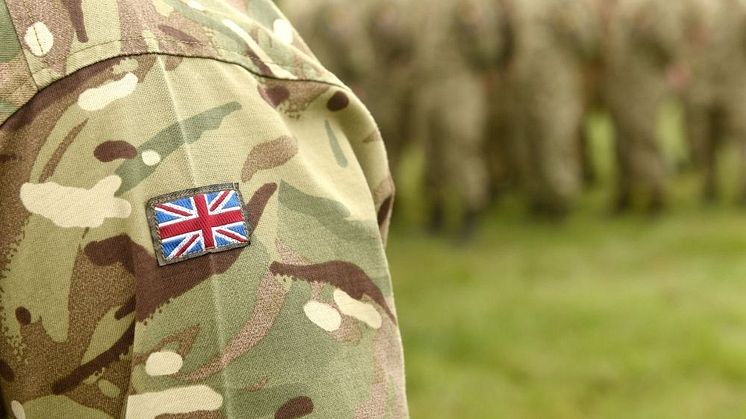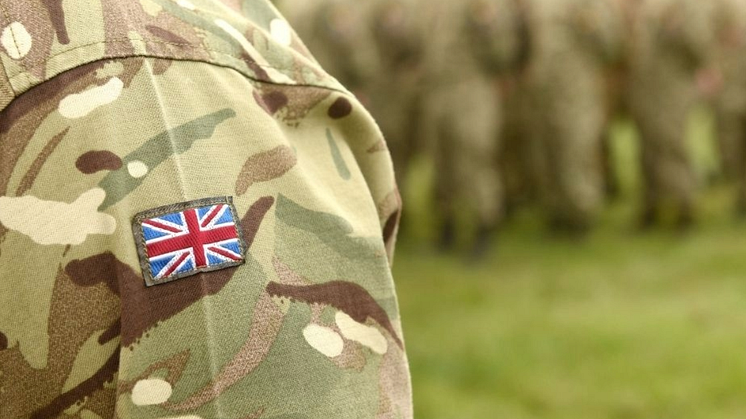
Press release -
Early intervention can reduce food insecurity among military veterans
Academics are calling for early intervention for those at risk of becoming food insecure within the veteran community, potentially introducing cost-saving benefits for the NHS and supporting charities.
A study led by Northumbria University’s Northern Hub for Veterans and Military Families Research looked at wider household poverty among veterans, with a particular focus on food security in veterans’ families – meaning they are without reliable access to nutritious and healthy food.
The Tri-Service Food Insecurity Study, which was funded by the Armed Forces Covenant Fund Trust and SSAFA, the UK’s oldest tri-service military charity, found that younger veterans of working age are most at risk of becoming food insecure.
Using survey data from UK veterans and their families, researchers have identified those veterans who may be at greater risk of food insecurity, which can be used to help identify those within the community who are likely to experience food insecurity, and wider financial hardship, before they reach a ‘crisis’ point.
Age, having a long-term medical condition, living in rented accommodation, receiving benefits, lower military rank on leaving the services and marital status are all associated risk factors. This information creates an opportunity to provide veterans who are at the most risk of food insecurity, with tailored support and in doing so, enables early intervention and the early allocation of resources.
Professor Matthew Kiernan, Director of the Northern Hub for Veterans and Military Families Research at Northumbria University said: “Now that we have an idea of what a veteran who is experiencing food insecurity and financial hardship looks like, we can consider how we might coordinate services to intervene to avoid crisis and build support around the causes of food insecurity and not just addressing the symptoms. A multi-organisational approach needs to be adopted so that the findings of studies such as this can make a difference to the everyday lives of veterans.
“The next step is to look at how health and social care services can better work in tandem with military charities to identify veterans who might be reporting, or experiencing, these difficulties, so that they are referred to an appropriate service within the military charities sector.”
Using preventative measures would not only benefit veterans and their families, but could also reduce the economic cost of crisis and the need for additional support from the NHS and charities, which is often costly.
Anna Wright, Chief Executive of the Armed Forces Covenant Fund Trust, said: “‘The Trust welcomes this important work to identify the risk factors of food insecurity. This knowledge could help organisations to provide early intervention and support that is tailored to individuals, particularly those most at risk. Early intervention means that less resource is required and, crucially, that Veterans are supported before they reach crisis point.”
The research team now want to understand what drives the identified risk factors to address these issues within a proposed model for early referral within primary healthcare.
This study is part of a programme of research from the Northern Hub for Veterans and Military Families Research and the Healthy Living Lab at Northumbria University, working closely with SSAFA and their volunteer network to collect and analyse a range of anonymised data from serving personnel, veterans and families from all three branches of the Armed Forces community.
The Tri-Service Food Insecurity Study can be found on The Armed Forces Covenant Fund Trust website.
Visit the Northern Hub for Veterans and Military Families Research’s webpages to find out more about their work to improve the health and social wellbeing of veterans and their families.
Northumbria University is dedicated to reducing health and social inequalities and improving social, economic and health outcomes for the most marginalised in society. Through its new Centre for Health and Social Equity, known as CHASE, researchers will be delivering world-leading health and social equity research and creating innovative, evidence-based policies and data-driven solutions to bring impactful change across the region, the UK and globally.
Topics
UNIVERSITY OF THE YEAR 2022 (Times Higher Education Awards)
Northumbria is a research-intensive university that unlocks potential for all, changing lives regionally, nationally and internationally. Find out more about us at www.northumbria.ac.uk
--- Please contact media.communications@northumbria.ac.uk with any media enquiries or interview requests ---









